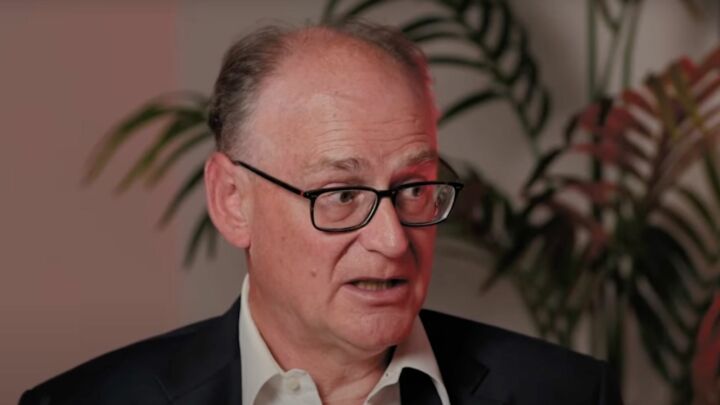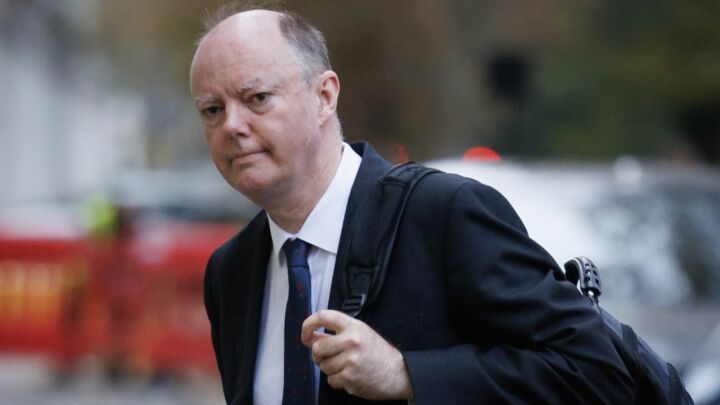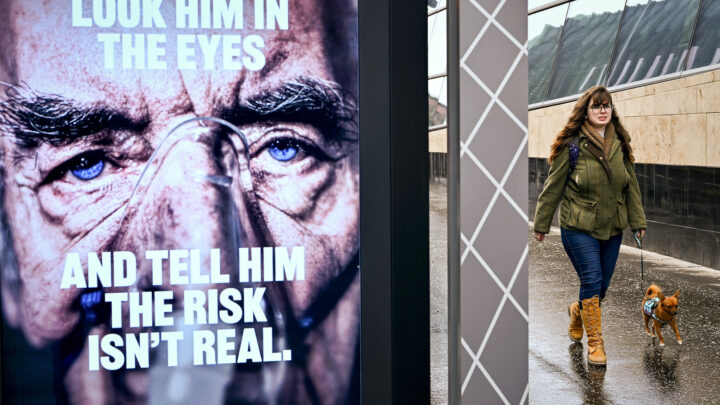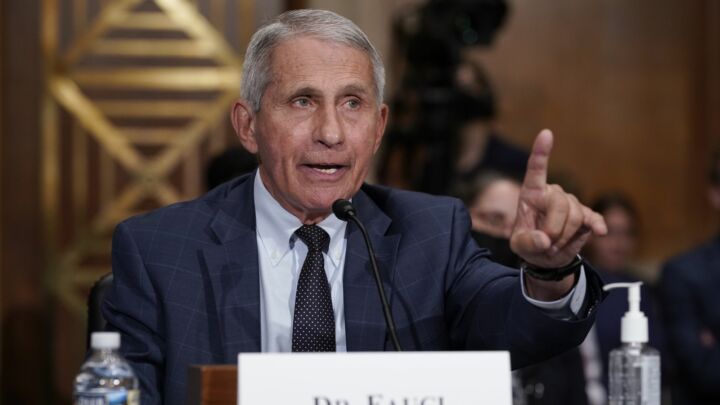The junk science behind face masks
There is still no evidence that mask mandates limit the spread of Covid.

Want to read spiked ad-free? Become a spiked supporter.
A Scottish lobby group of healthcare workers wants us to start wearing masks again. The Scottish Healthcare Workers Coalition (SHWC) has warned against the UK government’s decision, taken in May, to remove face-mask guidance in healthcare settings. It has claimed that there are ‘very serious flaws’ in changing the guidance.
What’s troubling here is that the SHWC assumes that masks actually work. That they actually reduce the airborne spread of Covid. But there is very little evidence to support that claim.
That’s certainly the view of January’s Cochrane Review on ‘Physical interventions for respiratory viruses’, to which one of us – Tom Jefferson – contributed. A Cochrane Review, widely considered the gold standard of systematic reviews, identifies, appraises and synthesises all the empirical research on a healthcare matter, and separates robust studies from flaky ones. This particular Cochrane Review concluded that:
‘Wearing masks in the community probably makes little or no difference to the outcome of influenza‐like illness / Covid‐19-like illness compared with not wearing masks… Wearing masks in the community probably makes little or no difference to the outcome of laboratory‐confirmed influenza / SARS‐CoV‐2 compared with not wearing masks.’
The review wasn’t saying that masks definitely don’t ever work. We can’t be certain of that. Rather, it was saying that they ‘probably’ don’t work in community settings, based on the best-available evidence.
But this was not what advocates of face masks wanted to hear. And so they attacked Cochrane itself. Karla Soares-Weiser, the editor-in-chief of Cochrane, then buckled under the pressure.
In February, she published a statement asserting that: ‘Many commentators have claimed that a recently updated Cochrane Review shows that “masks don’t work”, which is an inaccurate and misleading interpretation.’ However, she never actually explained why this would be an ‘inaccurate’ or ‘misleading’ interpretation of the review, when it clearly found no evidence that face masks work.
What we see here is a conflict between what robust science says on masks and what others want the science to say. The science on face masks is full of uncertainty, but face-mask advocates want absolute certainty. This is captured well by a New York Times response to the Cochrane Review, which cherry-picked a number of studies to conclude: ‘Here’s why the science is clear that masks work’.
Then there’s Dr Rochelle Walensky, who was director of the US Centers for Disease Control and Prevention (CDC), until she resigned in May. She claimed in February this year, during a congressional hearing, that there is no uncertainty at all about the efficacy of face masks. She even said that, because of this certainty, there was no need for the CDC to conduct any randomised control trials on masking during the pandemic. After all, if you’re certain about something, you don’t need to question or test it.
This combination of certainty and an unwillingness to do proper research should not surprise us. Throughout the pandemic, governments imposed mask mandates across society, based on little to no evidence that they would work.
After the UK government reimposed a mask mandate in schools in early 2022, we reviewed the research that it used to make its case. We were struck by how shoddy it was. But nothing could prepare us for the abysmal evidence included in the UK Health Security Agency’s review to justify mask mandates in ‘community settings’, published in January 2022. Out of the 23 studies it included, 11 were inappropriate and the rest had no basic measures to minimise bias. One study had even been published in a predatory journal – that is, one that takes your money and publishes whatever you send in, no questions asked. Alongside all that, there was some cherry-picked ONS data. None of this should really have counted as evidence.
As it stands, there is simply no evidence-based case for face masks. It is possible masks may work in certain situations. But there is absolutely no certainty they work in all situations.
This matters. Mask mandates, no matter how localised, aren’t harmless measures. They affect social behaviour and help to reinforce a climate of fear. In this regard, they were indicative of the government’s mishandling of the pandemic, as it resorted to authoritarian behavioural interventions. Indeed, to ensure mask compliance, the government effectively prosecuted its own citizens for daring to breathe fresh air. In London alone, 4,000 people were issued with penalty notices of up to £200 for going maskless in 2022 alone.
Our hapless politicians followed the experts who claimed masks work with absolute certainty. And they ignored anyone who expressed doubts about the evidence. The result was a dubious policy that has caused plenty of damage.
Thankfully, it seems unlikely the public will be following Scottish healthcare workers and calling for the return of mask wearing. Although respiratory illnesses like Covid are always spreading, most people have decided against masking up again. As ever, there is profound wisdom in the crowd.
Tom Jefferson is a senior associate tutor at the University of Oxford and a visiting professor at Newcastle University.
Carl Heneghan is a professor of evidence-based medicine at the University of Oxford and director of the Centre for Evidence-Based Medicine.
Picture by: Getty.
Celebrate 25 years of spiked!
A media ecosystem dominated by a handful of billionaire owners, bad actors spreading disinformation online and the rich and powerful trying to stop us publishing stories. But we have you on our side. help to fund our journalism and those who choose All-access digital enjoy exclusive extras:
- Unlimited articles in our app and ad-free reading on all devices
- Exclusive newsletter and far fewer asks for support
- Full access to the Guardian Feast app
If you can, please support us on a monthly basis and make a big impact in support of open, independent journalism. Thank you.







Comments
Want to join the conversation?
Only spiked supporters and patrons, who donate regularly to us, can comment on our articles.